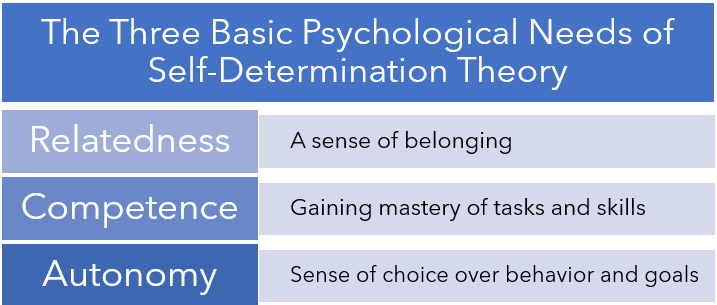What motivates individuals with lived experience of mental health challenges to participate in their communities?

Individuals with mental health challenges face barriers to participate fully within their communities, which may include recovery communities (e.g., recovery learning centers, clubhouses) as well as the larger community (e.g., work/school, church/temple, social clubs). There is need for researchers to better understand factors that facilitate and those that impede community participation.
The present study examined the meaning of community participation and what drives it for individuals with mental health challenges using the framework of self-determination theory, a theory of motivation. This theory states that people have three basic psychological needs of 1) relatedness, 2) competence, and 3) autonomy.

How was this study conducted?
Fifty-nine participants (adults with mental health challenges, mental health providers, family members, and community leaders) took part in the study. Semi-structured focus groups and individual interviews were conducted, audiotaped, transcribed, and analyzed for themes related to self-determination theory. Community members with lived experience were included in all stages of the research study.
What were the main findings?
Community participation holds meaning and value for individuals with mental health challenges, family members, providers, and community leaders that align with self-determination theory needs of relatedness, competence, and autonomy. Participants described the importance of having a social network and most often considered family members their closest support. They also noted the value of feeling a sense of belonging and participating in the larger society (relatedness). Participants also discussed the importance of having a valued role in society, which often related to work and education (competence). Finally, participants described the importance of doing activities independently (autonomy) and how having support can be helpful.
“If you have a purpose, and then you have the ability to be a little more self-sufficient, and you feel that you’re valued by your employer and you have a place in life.”
[Participant #903] – Employer of persons with lived experience of mental health challenges.
“Community to me is getting out and about. Just getting out and trying to be part of the outside”
[Participant #152] – Person with lived experience of mental health challenges
What new information does this study tell us?
The study showed that persons with mental health challenges define community participation as having a social network and feeling a sense of belonging, having a valued role in society, and engaging in activities independently.
How can we apply this information in the real world?
- Clinicians can promote community participation by 1) assessing clients’ current level of participation in their communities, 2) collaboratively identifying ways to engage in community activities, and 3) promoting participation in the recovery community as well as the larger community in accordance with individual preferences.
- Individuals with mental health challenges and family members of individuals with mental health challenges can 1) talk with a peer, ally, or provider about the potential benefits and challenges of participating in community activities, and 2) enroll in programs that can support personal recovery goals.
- Peers can 1) creatively outreach and engage community members that may be vulnerable to isolation, 2) share their personal experiences of the benefits of participating in their communities and 3) support community members to access and navigate complex recovery and community systems.
Millner, U. C., Woods, T., Furlong-Norman, K, Rogers, E. S., Rice, D., & Russinova, Z. (2019). Socially valued roles, self-determination, and community participation among individuals living with Serious Mental Illness. American Journal of Community Psychology, 63 (1), 32-45.